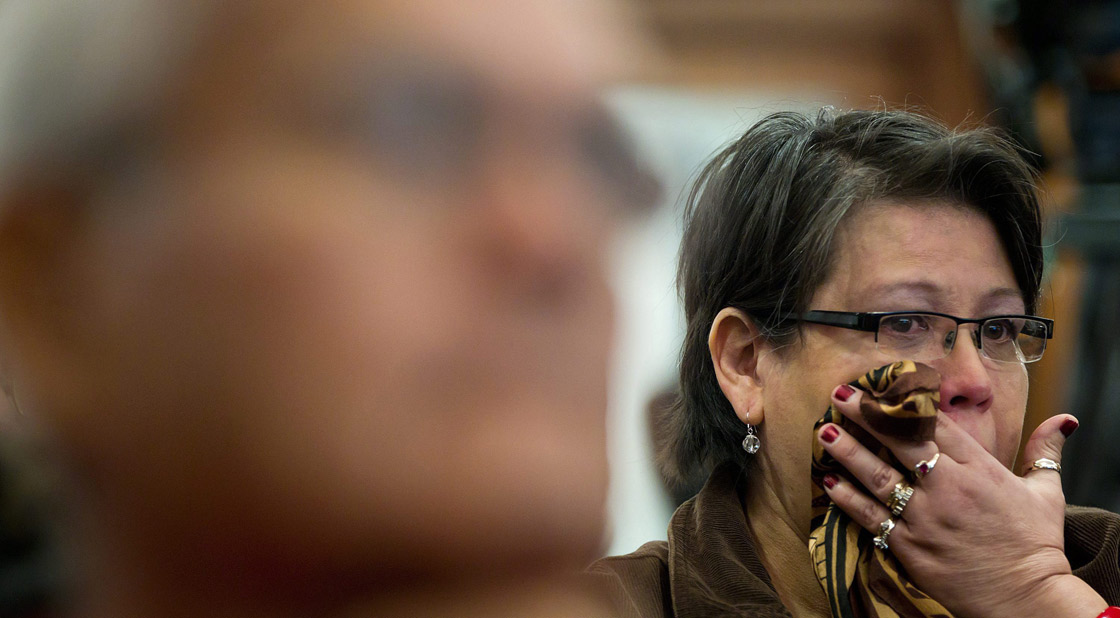OTTAWA – In the wake of a damning auditor general’s report casting doubt on creating a legacy of Indian residential schools, opposition members are calling for an extension of the Truth and Reconciliation Commission – especially if the government wants to avoid a court challenge.

With only 15 months left in the commission’s five-year mandate, NDP and Liberal members say there likely isn’t enough time to create a historical record of residential schools because the government has yet to release a host of documents held at Library and Archives Canada.
The $60 million commission was created in 2007, after a $1.9 billion settlement with residential school survivors, many of whom were physically and sexually abused. The work got going in 2009, after the original commissioners quit the previous year.
“Unless the government agrees to extend the timeline for production of these documents, the consequence will be that the terms of the agreement will not be fulfilled,” said NDP aboriginal affairs critic Jean Crowder.
“I would anticipate that it could lead to a subsequent court challenge,” she said.
The sentiment was echoed by Liberal critic Carolyn Bennett, who agreed the commission needs the documents to get its work done.
“Get them the documents, but they also need the resources and probably an extended timeline to deal with them,” she said.
- Alberta to overhaul municipal rules to include sweeping new powers, municipal political parties
- Norad looking to NATO to help detect threats over the Arctic, chief says
- Grocery code: How Ottawa has tried to get Loblaw, Walmart on board
- Canada, U.S., U.K. lay additional sanctions on Iran over attack on Israel
“To be able to fulfill the intent of the apology in getting to the truth and therefore the reconciliation, the commission has to be able to do a proper piece of work, and that means with the documentation, the adequate resources and the time to do it properly.”
The audit, released Monday, found that lack of cooperation between the department of aboriginal affairs and the commission caused significant delays in the process, and according to Auditor General Michael Ferguson, “stand in the way of creating the historical record of Indian residential schools as it was originally intended.”
While Ferguson faulted both sides, he said the government has more resources at its disposal and needed to “step up a little bit” to lead reconciliation.
At issue was the scope and definition of the relevant records. The commission wanted a broader scope and took the government to court. In January, an Ontario judge ruled in favour of the commission and ordered the government to release the archived records.
But four months later, aboriginal officials say the government hasn’t yet come up with a plan and is refusing to provide a timeline for when it intends to release the documents to the commission.
Justice Murray Sinclair, who chairs the commission, said the TRC is still waiting for the government to compile and organize their records. And until then, they are stalled.
“It’s imposing some issues on us as to our remaining time and the cost that we have to undertake now,” Sinclair said in an interview on Monday. He said his fear now is that the commission will get a “document dump” towards the end of its mandate, and may have to seek direction from the courts.
A spokeswoman for Aboriginal Affairs Minister Bernard Valcourt said the government is committed to a “fair and lasting resolution” to the legacy of residential schools.
“That is why the Prime Minister made an historic apology on behalf of all Canadians in 2008 and why we have disclosed 3.5 million documents to the Truth and Reconciliation Commission so far,” said spokeswoman Andrea Richer, who added the government has provided an additional $8 million for administrative costs and $1 million per year in services.
She said both the government and the TRC have agreed to work together on a plan for disclosing the relevant historical documents held at the Library and Archives Canada.
Richer did not answer questions about extending the commission or providing additional funding.
A spokesman for Library and Archives Canada referred all questions to the department of aboriginal affairs.


Comments